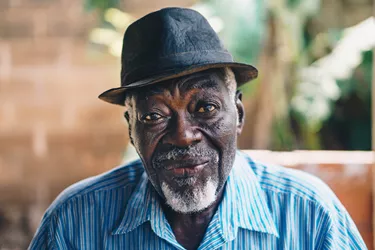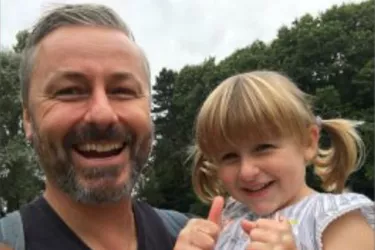Spinning multiple plates...
Rhiannon talks about her journey with stress and how she has re-evaluated how she copes.
The aim of this blog is to encourage people to try and cut themselves some slack… I’m still trying to master this, I’m not quite there!
I’ve previously spoken about my diagnoses… a delightful mixture of anxiety, OCD and panic disorder. Things reached a crescendo this time last year but this is something that could have been stopped had I not hidden all the triggers for years and years, spanning back to childhood.
I’ve always been quite a perfectionist, always striving to do the best and wanting everyone around me to think highly of me.
"Basically, I’m a multiple plate spinning people pleaser kind of person. The only person left unhappy at the end of it is me."
I have suffered from my anxiety since my teens. Not sleeping, worrying, feeling highly stressed – it has never taken much for me to boil over. I was constantly in anguish about things that had happened, work I had done and things that had not even happened yet! But I always kept going, actually being quite pragmatic and never allowing the ‘wheels to come off’.
I guess my stress levels peaked upon my return to work following the birth of my daughter. My partner and I worked full-time shifts, both working on the same shift. Others perhaps would not have understood this and wondered why we did not work opposites to reduce childcare – but this would have meant no time together as a family. So things continued like that for years.
Childcare arrangements were organised chaos, Erin sleeping out four days in 10. In addition to thinking about where she and I needed to be, I also had to make sure that she had everything that she needed.
As simple as packing a bag might sound, this would really stress me out. I was always packing and unpacking and making sure all bases were covered. I felt that people looked poorly on working women who went part time, with the attitude of…
‘It’s not the job’s fault that they’ve had kids’.
So I never dropped any hours. I kept going full time, doing nights. I worked nights throughout my pregnancy too.
Being in the police, there is a huge expectation on you to be a ‘superwoman’ type, keeping up with colleagues and not showing any weakness. The emergency services are fast paced and you constantly have to move from call to call. As resources have fallen and demand has increased, you are constantly being called on the radio, often having to work alone meaning that a vast deal of stress is put on your shoulders to get through it all.
The sights are stressful and often dangerous. Unpleasant situations not designed for human consumption are a regular feature of your week. This causes a tremendous amount of pressure on the brain, to filter everything you are seeing, process all the information and deal with things pragmatically and often quickly, making life-altering decisions in split seconds at times.
And then follows the paper trail, all before the golden minute of home time, covering your steps to ensure that everything is well evidence and documented. Then start all over again the next day.
"And that’s if you leave it at the door. If you can’t, it creeps in at home and you start to accumulate the stress."
Personally, in addition to the work element, I felt the usual stresses of keeping a clean house (exacerbated by OCD), being a good partner, cooking, shopping and arranging fun family activities for my daughter and stepson.
To say that I was overwhelmed would have been an understatement. Partly I think that I couldn’t have done things any other way. I was so determined that people would not think negatively of me that I continued to take more and more on, trying to maintain friendships left right and centre and spreading myself incredibly thin.
"But things inevitably went bang, to the point that I thought my life was over."
Stress caused all manner of manifestations which you would never think would happen just as the result of ‘having too much on your plate’.
Reading this back, it’s easy to see why things might have reached that point. What the last year has taught me has been tremendous. Personally, work had a huge part to play.
Finally acknowledging that acting like everything was fine was really dangerous was key.
I took time out for myself to focus on getting stronger mentally and trying to become healthy again. There is no need to reach meltdown if you can acknowledge the signs along the way.
When you keep being asked to do things, how about saying no? I struggle hugely with this but guess what – it will still get done, just maybe by someone else!
That coffee that you are trying to fit in to feel like a good friend even though you are rushed off your feet – how about rearranging to a time that’s good for you, not them?
Simple things can make a huge difference. For me, even just stripping back the ‘friendships’ I was trying to maintain – acknowledging that those who want to be there for you, will be and perhaps drawing a line under the rest. No malice intended.
Now, when things are too much, I take some time out to watch a simple programme, make lists, go for a walk, have a quiet bit of time to myself – all to get back in working order and ‘reset’, instead of burying it. I have changed the role for the foreseeable future to get back on an even keel – someone else will do what I did and I can be just as useful somewhere else.
My advice would be if you’re feeling stressed, be kind to yourself, everything starts with you.


Information and support
When you’re living with a mental health problem, or supporting someone who is, having access to the right information - about a condition, treatment options, or practical issues - is vital. Visit our information pages to find out more.
Share your story with others
Blogs and stories can show that people with mental health problems are cared about, understood and listened to. We can use it to challenge the status quo and change attitudes.

















